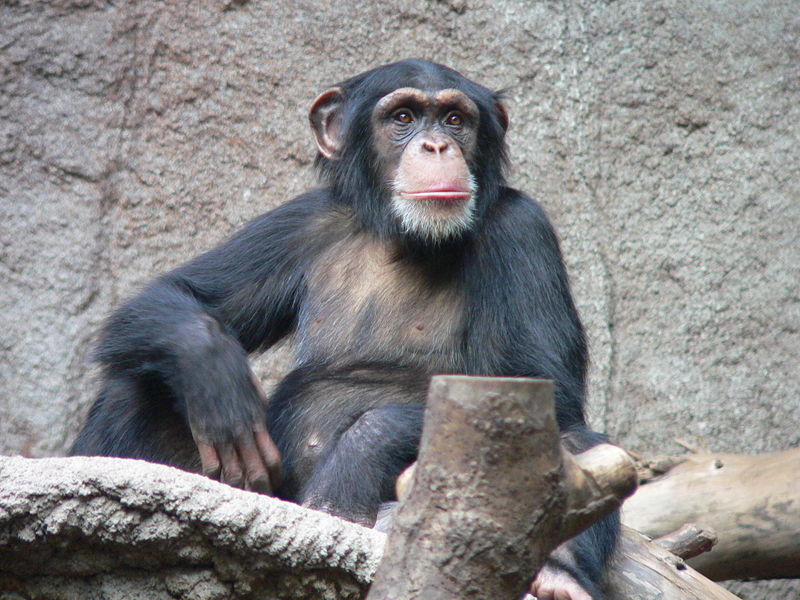
Photo courtesy Thomas Lersch, Wikimedia Commons
Even though AIDS likely came to us from chimpanzees, chimps don’t develop AIDS. Or so we thought.
New evidence shows that chimpanzees infected with SIV—simian immunodeficiency virus, the precursor to HIV-1—do contract and die from AIDS. The paper appears in Nature.
The chimps at the heart of the study live at Gombe National Park, Tanzania. This population has survived the ravages of the modern world thanks to 50 years of dedicated oversight from Jane Goodall and colleagues.
Among the findings from researchers working in Gombe:
- Infected chimps are 10-16 times more likely to die than uninfected chimps
- Infected females are less likely to give birth
- Infants born to infected mothers are unlikely to survive
- The virus is transmitted sexually and through the milk of infected mothers
- In the course of the nine year study, 10-20 percent of the 94 chimpanzees were infected at any given time
The finding opens up new opportunities for research. Goodall says: “We hope this will lead to a better understanding of the virus that will benefit both humans and chimpanzees.”
The virus affects chimpanzees in similar ways to humans and although there is no practical treatment for the chimps, it appears the SIV infection is not as pathogenic as HIV-1 in humans. The Gombe chimps have maintained their community size despite the disease.













